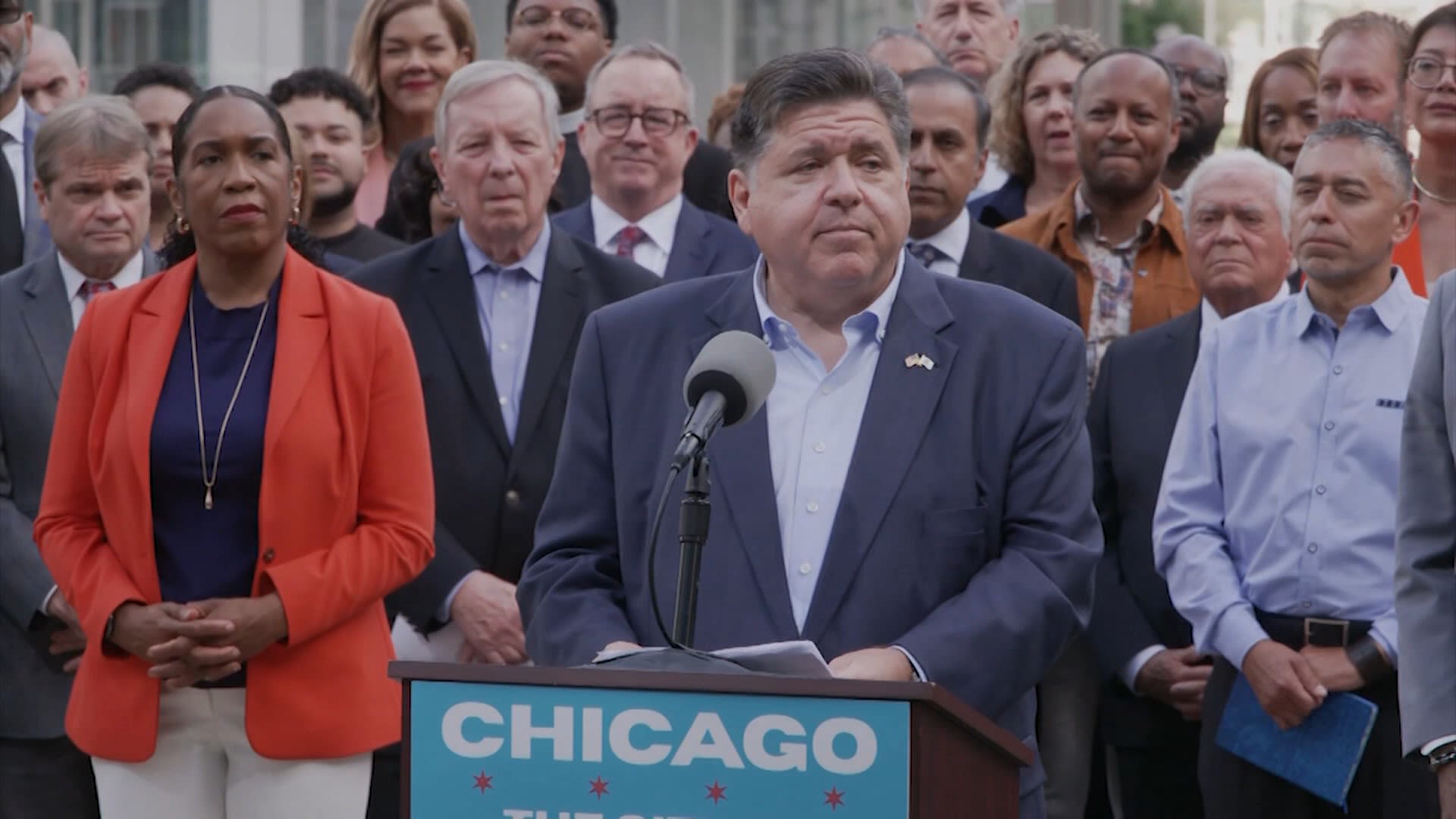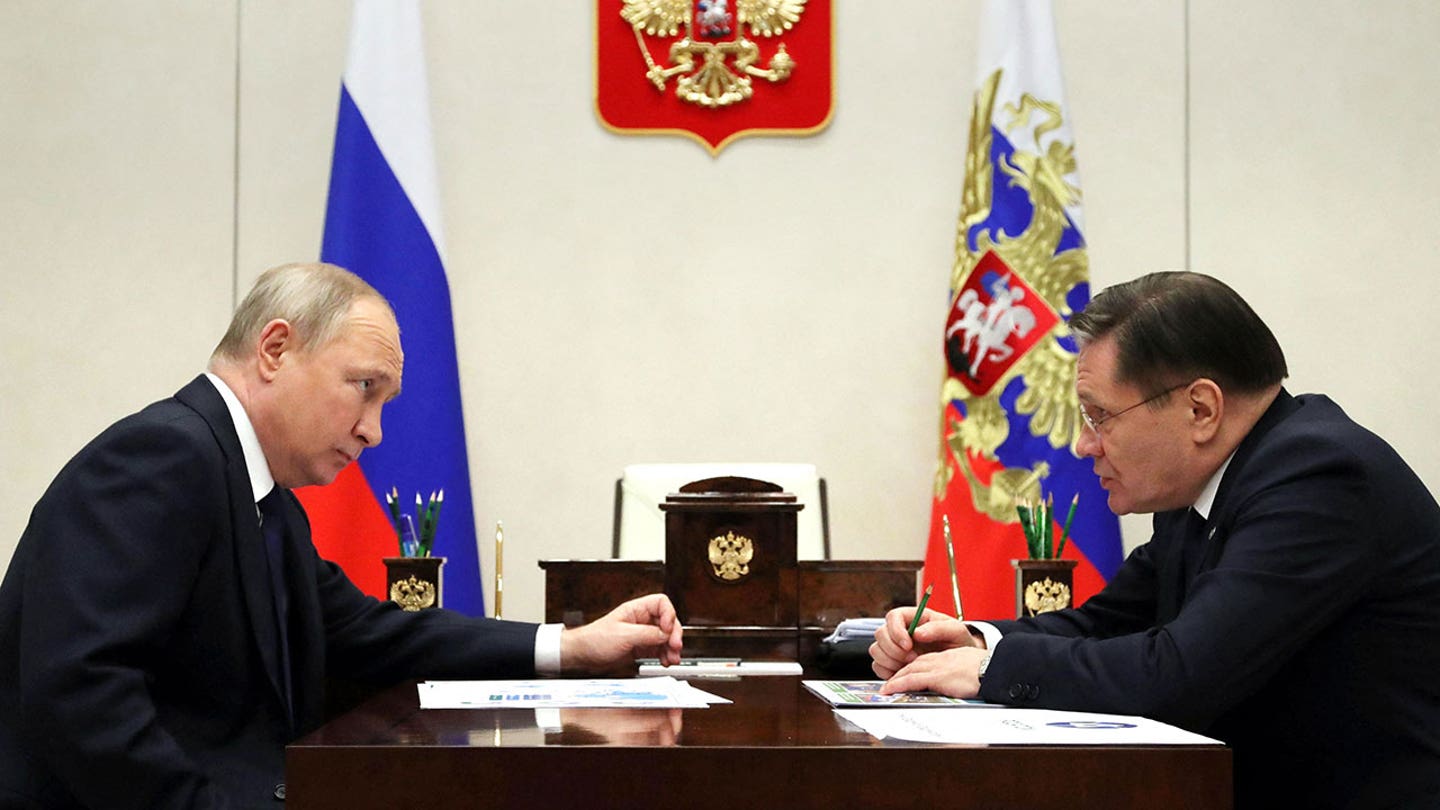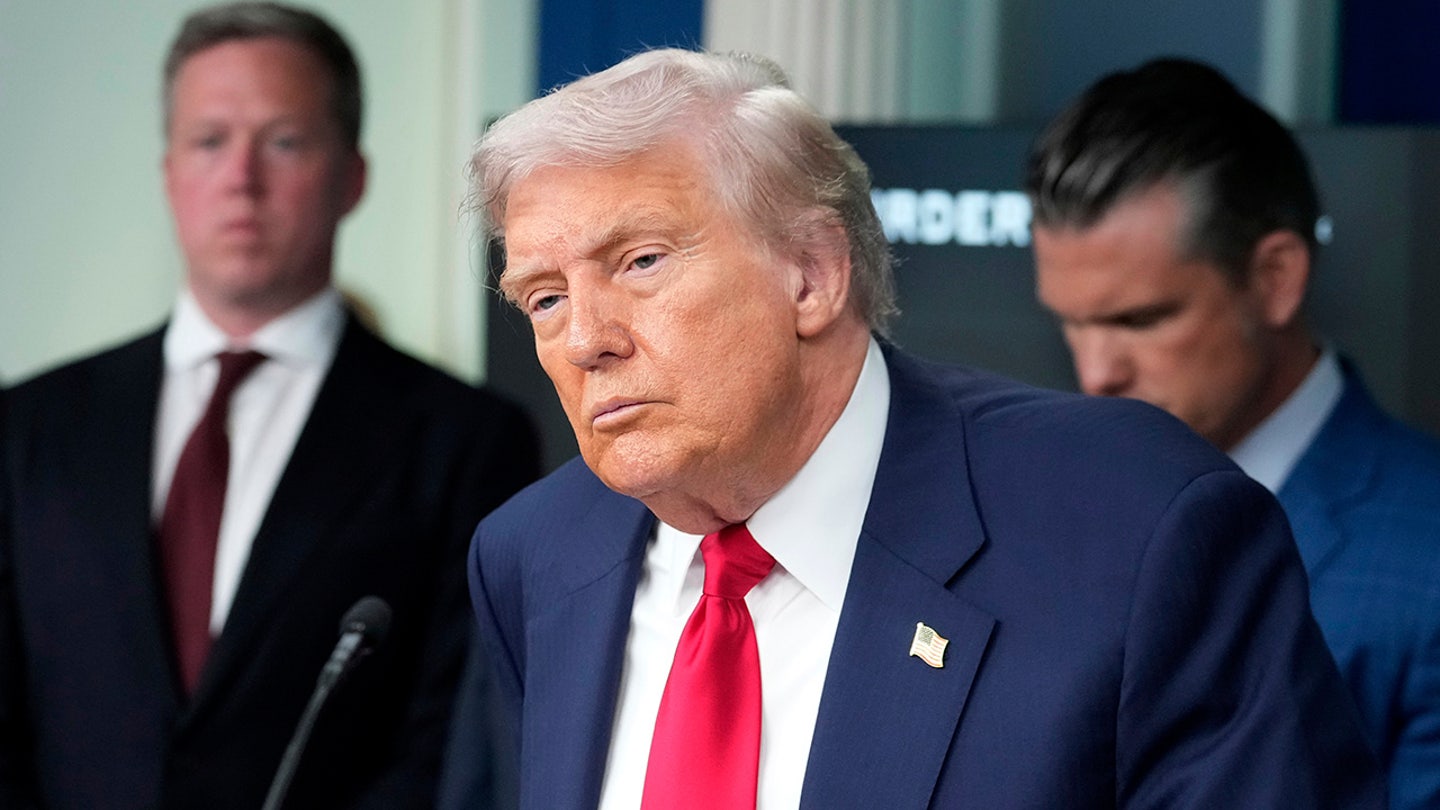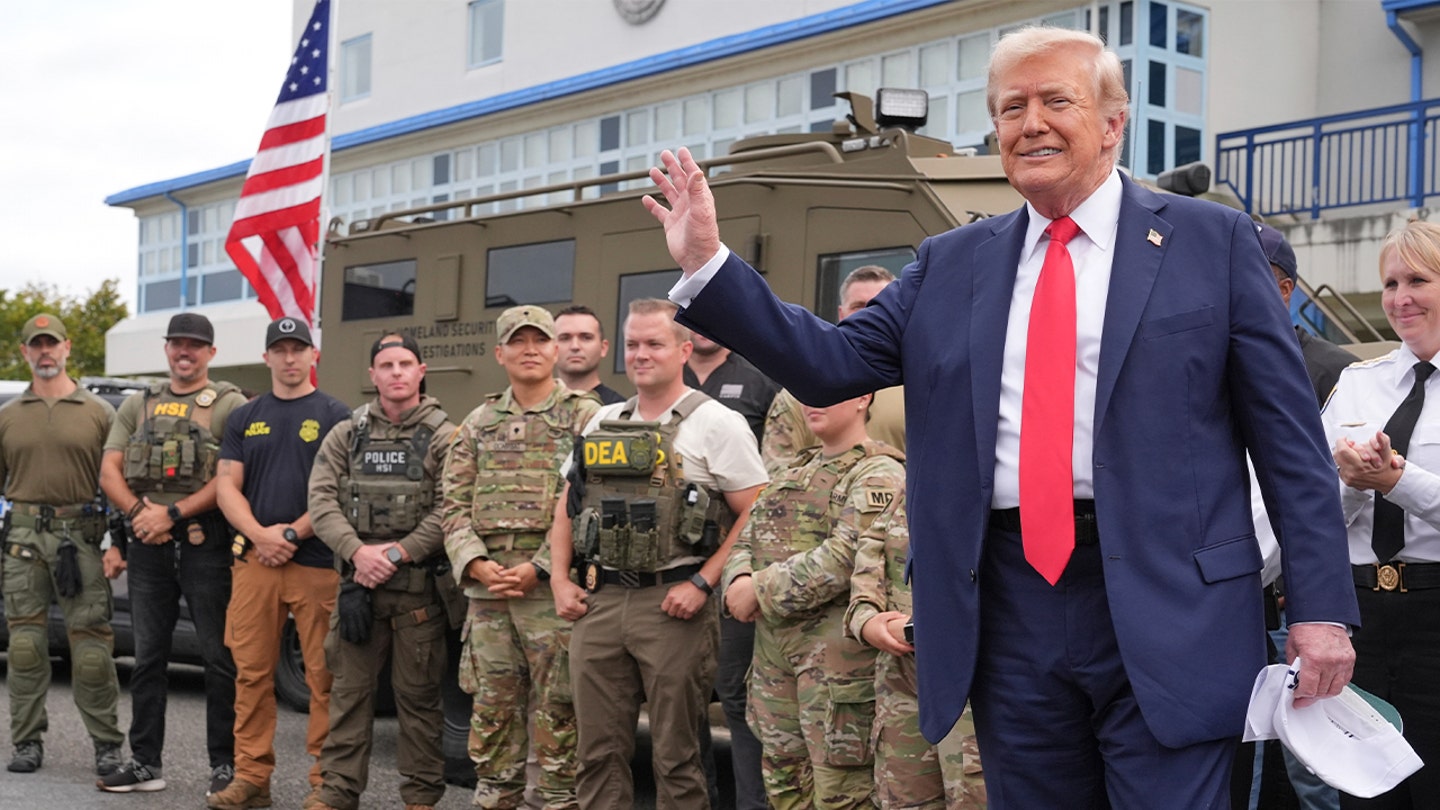
Trump signs executive order establishing ‘specialized’ National Guard units to address crime in cities
Entities mentioned:
- Donald Trump: Power, Control, Legacy
- Pete Hegseth: Duty, Loyalty, Professional pride
- National Guard: Duty, Security, Control
- Rachel VanLandingham: Professional pride, Wariness, Justice
- Tammy Duckworth: Moral outrage, Justice, Duty
Article Assessment:
Credibility Score: 70/100
Bias Rating: 55/100 (Center)
Sentiment Score: 35/100
Authoritarianism Risk: 65/100 (Authoritarian Tendencies)
Bias Analysis:
The article presents multiple viewpoints, including critical perspectives, which contributes to a relatively balanced presentation. However, there's a slight lean towards emphasizing concerns and potential negatives of the executive order.
Key metric: Domestic Security and Civil Liberties Balance
As a social scientist, I analyze that this executive order represents a significant shift in the use of military forces for domestic law enforcement. The creation of 'specialized units' within the National Guard specifically for handling public order issues raises concerns about the militarization of civilian policing and potential infringement on civil liberties. The order's vague language and unclear implementation details leave room for potential misuse of these units, especially in politically motivated deployments. This move could impact the delicate balance between maintaining public safety and preserving individual freedoms, potentially leading to increased tension between federal and state authorities, as well as between the government and civilians. The focus on urban areas, particularly those led by Democrats, suggests a politicization of law enforcement efforts, which could further exacerbate political divisions and undermine public trust in both law enforcement and government institutions.

Pritzker tells Trump to stay out of Chicago: ‘You are neither wanted here nor needed here’
Entities mentioned:
- JB Pritzker: Righteousness, Moral outrage, Duty
- Donald Trump: Power, Control, Influence
- Brandon Johnson: Unity, Duty, Security
- Pete Hegseth: Duty, Loyalty, Control
Article Assessment:
Credibility Score: 75/100
Bias Rating: 40/100 (Lean Left)
Sentiment Score: 25/100
Authoritarianism Risk: 65/100 (Authoritarian Tendencies)
Bias Analysis:
The article leans slightly left, giving more prominence to Governor Pritzker's perspective and criticisms of the Trump administration. While it includes some information on the administration's plans, it primarily frames the issue through the lens of opposition to federal intervention.
Key metric: Civil Liberties and Rule of Law
As a social scientist, I analyze that this article highlights a significant conflict between state and federal authorities over the use of federal forces in American cities. The dispute centers on the balance of power between different levels of government and raises concerns about potential threats to civil liberties and democratic norms. Governor Pritzker's strong opposition to federal intervention without local consent reflects deep concerns about the erosion of local autonomy and the potential for federal overreach. This conflict has implications for the separation of powers, federalism, and the role of military forces in domestic affairs, all of which are crucial elements of the American democratic system.

The history of how Trump and Bolton's relationship fell to tatters
Entities mentioned:
- John Bolton: Power, Influence, Self-preservation
- Donald Trump: Power, Control, Revenge
- FBI: Duty, Justice, Security
- Rex Tillerson: Duty, Professional pride
- Mike Pompeo: Loyalty, Influence
- Robert C. O'Brien: Duty, Ambition
- JD Vance: Duty, Loyalty
Article Assessment:
Credibility Score: 75/100
Bias Rating: 55/100 (Center)
Sentiment Score: 30/100
Authoritarianism Risk: 40/100 (Generally Democratic)
Bias Analysis:
The article presents a relatively balanced account of the Trump-Bolton relationship, including quotes from both sides. While it leans slightly towards emphasizing Trump's criticisms of Bolton, it also provides context for their initial positive relationship.
Key metric: Political Stability Index
As a social scientist, I analyze that this article highlights the volatile nature of high-level political relationships in the U.S. government, particularly within the Trump administration. The deterioration of the relationship between Trump and Bolton, culminating in FBI raids on Bolton's properties, demonstrates the potential instability in national security leadership. This can significantly impact the Political Stability Index by showcasing how quickly alliances can shift and how internal conflicts can lead to potential security risks, especially concerning the handling of classified information. The ongoing investigation into Bolton also raises questions about the management of sensitive documents by former officials, which could have implications for national security and governmental transparency.

Russia looks to update nuclear program amid ‘colossal threats’ from West
Entities mentioned:
- Alexei Likhachev: Security, Power, Duty
- Vladimir Putin: Power, Security, Influence
- Donald Trump: Security, Competitive spirit, Power
- Russia: Security, Power, Self-preservation
- United States: Security, Influence, Power
- China: Power, Influence, Security
Article Assessment:
Credibility Score: 75/100
Bias Rating: 55/100 (Center)
Sentiment Score: 30/100
Authoritarianism Risk: 55/100 (Mixed/Neutral)
Bias Analysis:
The article presents a relatively balanced view, incorporating perspectives from both Russian and U.S. sources. However, there's a slight lean towards Western viewpoints, particularly in framing Russia's actions as potentially threatening.
Key metric: Global Nuclear Stability Index
As a social scientist, I analyze that this article highlights a concerning trend towards nuclear armament and away from disarmament efforts. Russia's emphasis on upgrading its nuclear capabilities, coupled with similar rhetoric from the U.S., suggests a potential new arms race. This development, along with the uncertain future of the New Start Treaty, could significantly destabilize global nuclear security. The article underscores the tensions between major powers and the use of nuclear capabilities as a geopolitical tool, which may lead to increased global instability and a higher risk of nuclear conflict.

Israel set to launch Gaza City offensive: High stakes, high costs ahead
Entities mentioned:
- Israel: Security, Revenge, Justice
- Hamas: Control, Power, Revenge
- IDF (Israel Defense Forces): Duty, Professional pride, Determination
- John Spencer: Expertise, Duty, Wariness
- Gadi Shamni: Expertise, Wariness, Duty
- Anonymous former Israeli security official: Expertise, Wariness, Duty
Article Assessment:
Credibility Score: 75/100
Bias Rating: 55/100 (Center)
Sentiment Score: 25/100
Authoritarianism Risk: 45/100 (Mixed/Neutral)
Bias Analysis:
The article presents multiple expert perspectives and includes detailed information about both Israeli and Hamas strategies. While it leans slightly towards the Israeli perspective, it also addresses potential risks and criticisms of the operation.
Key metric: Global Conflict Index
As a social scientist, I analyze that this article details Israel's preparation for a major offensive against Hamas in Gaza City, which will significantly impact the Global Conflict Index. The operation, dubbed 'Gideon's Chariots B', involves unprecedented military mobilization and presents complex challenges due to Gaza's dense urban environment and Hamas' extensive tunnel network. The analysis from military experts suggests a protracted, high-stakes conflict with potential for significant casualties on both sides and risks to civilian lives and hostages. This escalation could lead to increased regional instability, international diplomatic tensions, and a potential humanitarian crisis, all of which would negatively affect the Global Conflict Index. The operation's success or failure could have long-lasting implications for Middle Eastern geopolitics and global security dynamics.

Russia says Ukrainian drones hit nuclear power plant during Independence Day strikes
Entities mentioned:
- Russia: Control, Self-preservation, Security
- Ukraine: Freedom, Self-preservation, Determination
- U.N. nuclear watchdog: Security, Duty, Professional pride
- Rafael Mariano Grossi: Security, Duty, Professional pride
- Volodymyr Zelenskyy: Unity, Determination, Security
- United States: Influence, Security, Power
Article Assessment:
Credibility Score: 65/100
Bias Rating: 55/100 (Center)
Sentiment Score: 30/100
Authoritarianism Risk: 35/100 (Generally Democratic)
Bias Analysis:
The article presents information from both Russian and Ukrainian sources, attempting to balance perspectives. However, there's slightly more detail on Ukrainian statements, possibly indicating a slight lean towards Western sources.
Key metric: International Conflict and Security
As a social scientist, I analyze that this article highlights the ongoing tensions between Russia and Ukraine, particularly on Ukraine's Independence Day. The reported drone attacks on Russian infrastructure, including a nuclear power plant, demonstrate the escalation of the conflict and its potential to affect critical facilities. This raises significant international security concerns, especially regarding nuclear safety. The contrasting narratives from Russian and Ukrainian sources about the number and effectiveness of drone attacks reflect the information warfare aspect of this conflict. President Zelenskyy's speech emphasizes Ukraine's determination for independence and international recognition, while also acknowledging the complex geopolitical dynamics involving the US and Russia. The incident underscores the volatile nature of the conflict and its potential to impact global security and diplomatic relations.

DC statehood debate intensifies as Trump flexes authority over local police
Entities mentioned:
- President Donald Trump: Power, Control, Security
- Democrats: Justice, Freedom, Righteousness
- Sen. Paul Strauss: Justice, Freedom, Duty
- Del. Eleanor Holmes Norton: Justice, Freedom, Duty
- White House: Control, Security, Power
- Sen. Tim Kaine: Justice, Freedom, Duty
- Sen. Chris Van Hollen: Justice, Freedom, Duty
- Rep. Jamie Raskin: Justice, Freedom, Duty
- Republicans: Power, Control, Security
Article Assessment:
Credibility Score: 75/100
Bias Rating: 45/100 (Center)
Sentiment Score: 35/100
Authoritarianism Risk: 55/100 (Mixed/Neutral)
Bias Analysis:
The article presents views from both sides of the debate, including quotes from Democrats and White House representatives. While it gives more space to pro-statehood arguments, it also includes counterarguments, maintaining a relatively balanced perspective.
Key metric: Democratic Index
As a social scientist, I analyze that this article highlights a significant tension between federal power and local autonomy in Washington D.C., impacting the Democratic Index. The president's actions to take control of local police forces have reignited the debate on D.C. statehood, which is fundamentally about democratic representation and self-governance. This situation exposes the unique and problematic status of D.C. as a non-state entity subject to federal control, potentially undermining democratic principles. The debate also reflects broader national tensions between federal and state powers, and partisan divides on issues of urban governance and law enforcement. The push for D.C. statehood, if successful, would significantly alter the balance of power in Congress and potentially impact future national elections, thus having far-reaching implications for the Democratic Index of the United States.

Gianno Caldwell mulls Senate bid as Chicagoans are 'begging for change' on crime woes
Entities mentioned:
- Gianno Caldwell: Justice, Ambition, Duty
- Illinois Republican Party: Power, Influence, Security
- Donald Trump: Control, Power, Security
- Muriel Bowser: Freedom, Righteousness, Wariness
- Dick Durbin: Legacy, Duty, Self-respect
Article Assessment:
Credibility Score: 70/100
Bias Rating: 65/100 (Lean Right)
Sentiment Score: 35/100
Authoritarianism Risk: 55/100 (Mixed/Neutral)
Bias Analysis:
The article leans slightly right, focusing more on Republican perspectives and Trump's approach to crime. While it includes some opposing views, it gives more space and detail to conservative positions on law enforcement.
Key metric: Violent Crime Rate
As a social scientist, I analyze that this article highlights the growing concern over crime rates in major U.S. cities, particularly Chicago. Gianno Caldwell's potential Senate bid, motivated by personal tragedy and a desire for change, reflects a broader political shift towards prioritizing law and order. The article suggests a tension between federal intervention in local policing and concerns about civil liberties. This focus on crime could significantly impact the violent crime rate metric by potentially leading to more aggressive law enforcement policies. However, the effectiveness and potential consequences of such approaches remain debatable, as evidenced by the contrasting views presented in the article.

Scoop: 'Make America Fentanyl Free' campaign launches to help Trump lower overdose deaths
Entities mentioned:
- Donald Trump: Ambition, Legacy, Control
- Make America Fentanyl Free campaign: Righteousness, Duty, Influence
- Mexican drug cartels: Greed, Power, Control
- Trump administration: Control, Legacy, Security
- Democrats in California: Moral outrage, Justice, Security
Article Assessment:
Credibility Score: 65/100
Bias Rating: 70/100 (Lean Right)
Sentiment Score: 45/100
Authoritarianism Risk: 55/100 (Mixed/Neutral)
Bias Analysis:
The article leans right, primarily focusing on Trump's efforts and the new campaign supporting him. It presents criticism of Trump's approach briefly and near the end, giving more prominence to pro-Trump messaging.
Key metric: Drug Overdose Death Rate
As a social scientist, I analyze that this article highlights a new campaign aimed at supporting President Trump's efforts to combat fentanyl-related deaths in the United States. The campaign, 'Make America Fentanyl Free,' is presented as a privately-funded initiative to educate the public about fentanyl dangers and support Trump's policies. The article emphasizes Trump's past actions against fentanyl trafficking but also mentions criticism of his administration's approach. This campaign could potentially impact the drug overdose death rate by increasing public awareness and supporting stricter border control and law enforcement measures. However, the effectiveness of such campaigns in directly reducing overdose deaths is often debated in the scientific community.

Trump's week shaped by crime agenda, potential guard deployment to Chicago
Entities mentioned:
- Donald Trump: Power, Control, Influence
- Pam Bondi: Duty, Justice, Professional pride
- Brandon Johnson: Self-preservation, Righteousness, Indignation
- J.B. Pritzker: Duty, Self-preservation, Wariness
- Wes Moore: Duty, Security, Cooperation
- Muriel Bowser: Duty, Security, Self-preservation
Article Assessment:
Credibility Score: 70/100
Bias Rating: 55/100 (Center)
Sentiment Score: 35/100
Authoritarianism Risk: 65/100 (Authoritarian Tendencies)
Bias Analysis:
The article presents multiple viewpoints, including Trump's statements and responses from Democratic leaders. While it leans slightly towards critiquing Trump's approach, it maintains a relatively balanced presentation of facts and perspectives.
Key metric: Crime Rate in Major Cities
As a social scientist, I analyze that this article highlights President Trump's focus on crime reduction in major U.S. cities, particularly Chicago and Washington D.C., through the potential deployment of National Guard troops and increased federal law enforcement presence. This approach reflects a centralized, federal-level intervention in local matters, which could impact crime rates but also raises concerns about federal overreach and political motivations. The President's rhetoric and actions suggest a belief that forceful intervention can quickly reduce crime, but this approach may overlook complex socio-economic factors contributing to urban crime. The resistance from local Democratic leaders indicates a political divide in approaches to public safety and federalism. This conflict could affect the implementation and effectiveness of crime reduction strategies, potentially impacting the key metric of crime rates in major cities.